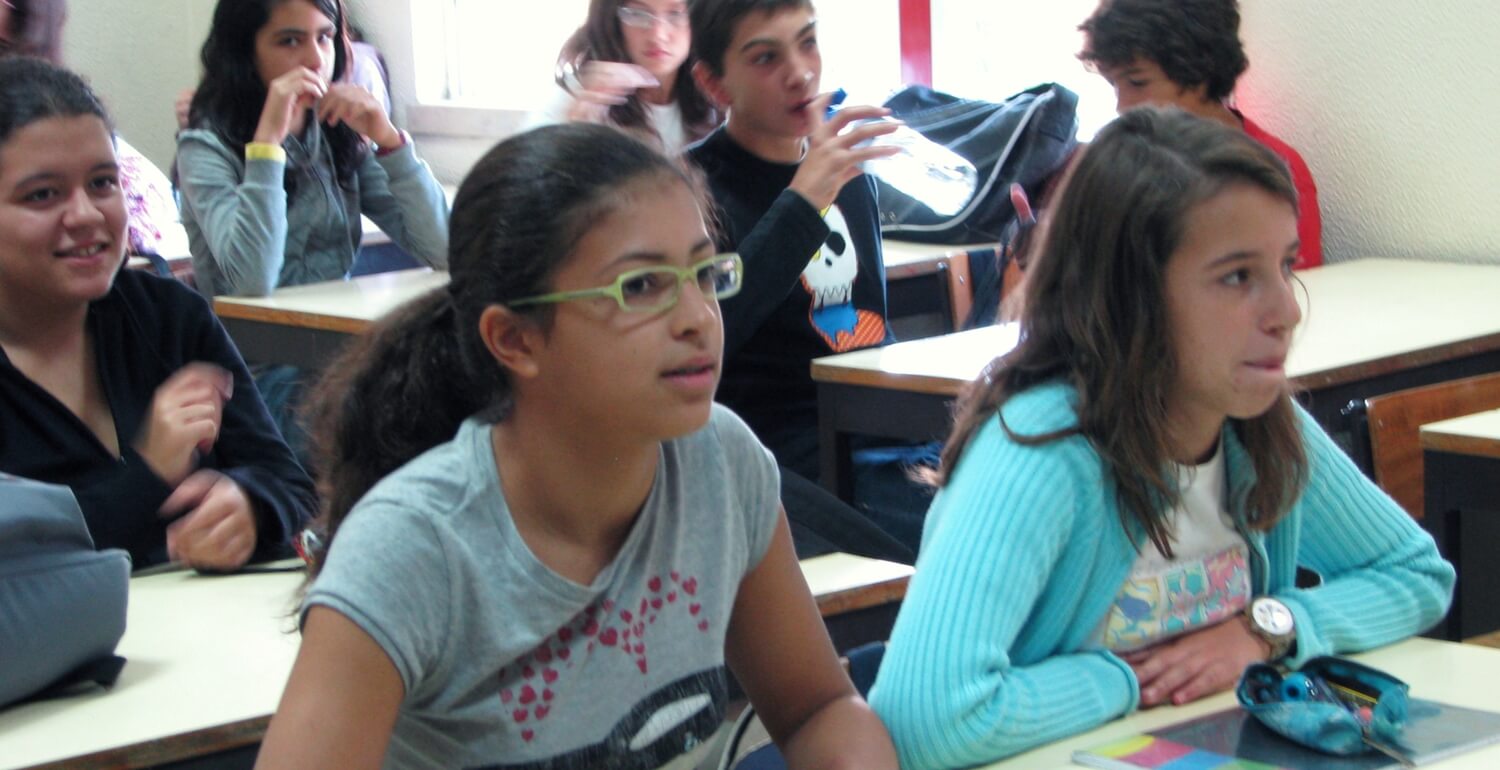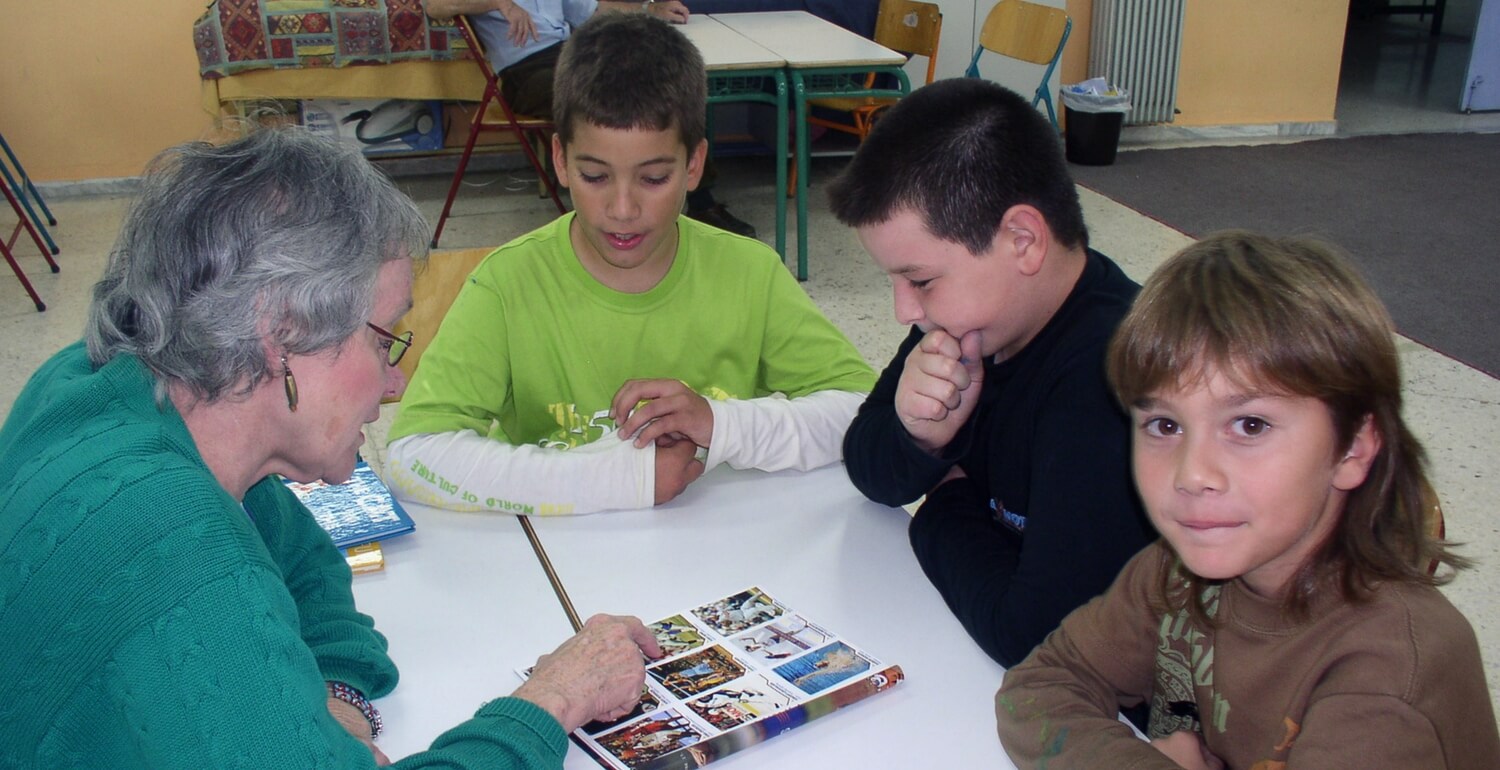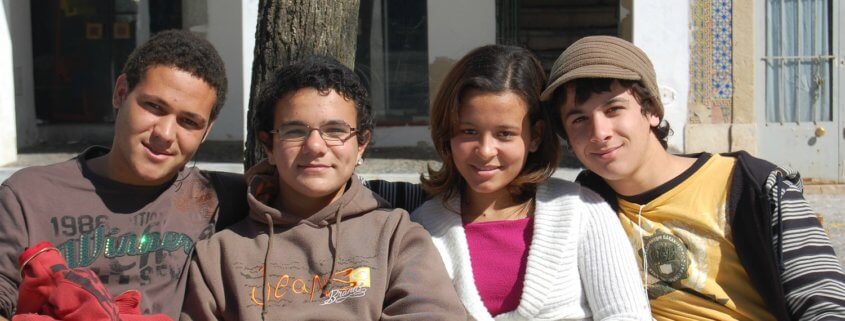Observations on Teaching Experience in Portugal
Observations on Teaching Experience in Portugal by Dot, 7-time Global Volunteer:
My experiences in Beja, Portugal were with high school students – in school and via tutoring – and 7th graders.
The high school students’ behaviors in Beja were similar to those of high school students in the United States (compared and contrasted with the experiences of my grandchildren in North Carolina public schools). There was the usual chattering in the halls when classes changed, but students were quiet after they entered the classroom.

Portuguese students ready to learn
Portugal’s high school academic offerings and requirements are significantly different from those in the United States. Students may select one of three tracks: vocational, humanities, or math/science. The vocational track may be similar to that in the U.S., but the college prep. track in Portugal is based on a different philosophy of education. College prep. students begin moving into the humanities or math/science tracks in 10th grade and by junior or senior year, they are focused almost entirely on them – more like college students concentrating on a major. I tutored a senior to help prepare him for the British equivalent of the TOEFL. He is following the Humanities trace and is a quite good student. However, I found him weak in applying math concepts, and his general knowledge in science was not strong.
Physical education is taught in high school, but there are no competitive sport teams with other schools or in intra-murals, whereas it sometimes seems that the team competition tail wags the educational dog in U.S. high schools. Participation in club sports, unassociated with the schools, seems to be important to Portuguese students at both junior high and high school levels.
There are no art, music or drama courses in high schools in Portugal as we have here in the United States. In Portugal, absence of the arts in schools appears to be a result of philosophy/perception of the role of public education rather than the shortage of Euros.
I was impressed with high school students’ knowledge of the political campaign in the U.S. and the insightful questions they asked. I know that the Trump v. Clinton race got tremendous international coverage, but I doubt if high school students in the U.S. follow the governments of other countries, even politically and economically powerful ones.
My teaching experience in Portugal included two seventh grade classes taught by the same teacher. She warned me that the first class was “the Class from Hell.” Both classes were indeed chaotic. I had difficulty even hearing and answering the student questions. Even so, on Friday evening, the father of one of the 7th graders gave me a ride “home” from the Polytechnic. We picked his daughter up from soccer club practice and she happily pulled out her phone to show me the selfie of her and me that she had taken earlier. I guess some of the students got something out of my interaction with them!
The class at the Polytechnic was interesting. The students were a group of faculty members, professionals and business people from the community who came in after their day’s work for an English class. Interacting with them was much like teaching my graduate courses before I retired – except my graduate students were getting course credits for being there.
Some comparisons and contrasts between Portugal and other countries based on my Global Volunteers programs…

Dot teaching conversational English in Crete, Greece
My experience has ranged from the highly structured British colonial system in South Africa to the students running the show, even to the point of calling strikes, in Crete, Greece. Portugal and the United States seem to fall close to each other near a midpoint between these extremes.
Click the button below to learn more about teaching opportunities in Portugal.





Leave a Reply
Want to join the discussion?Feel free to contribute!